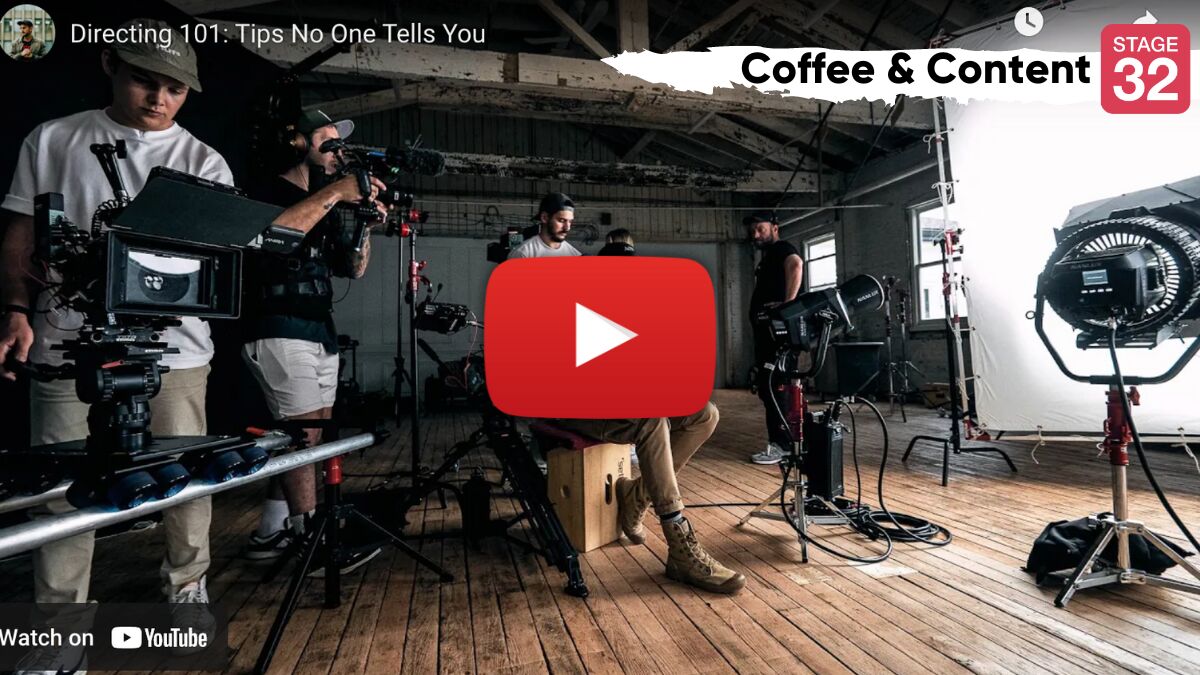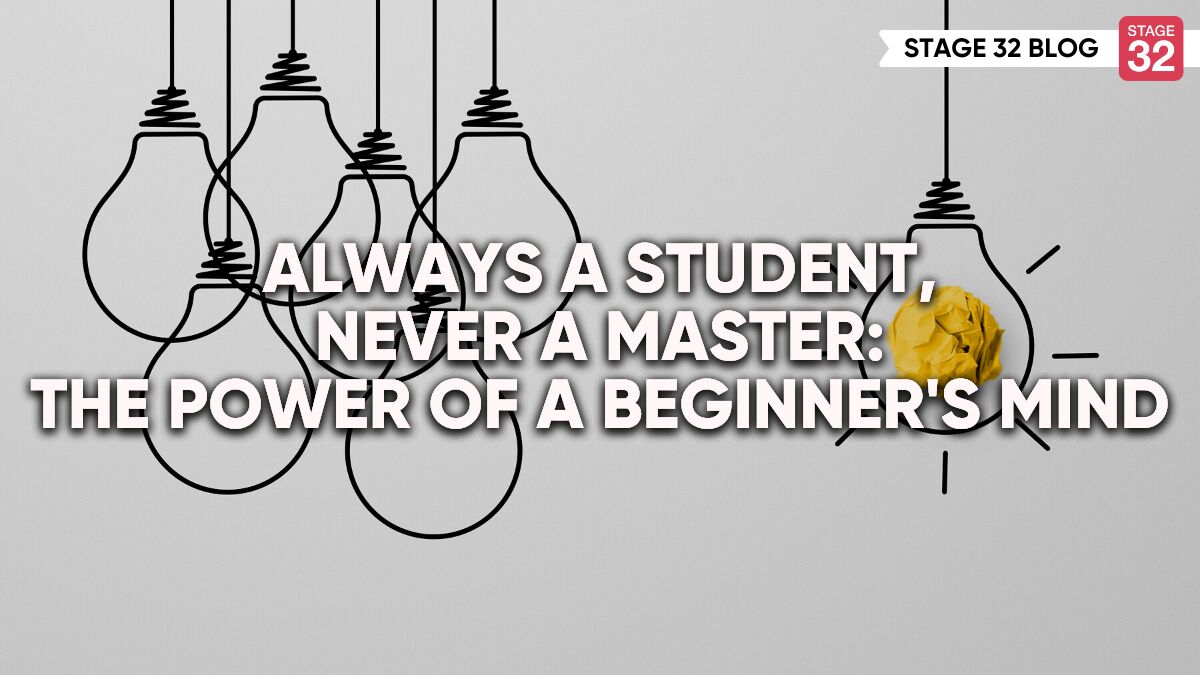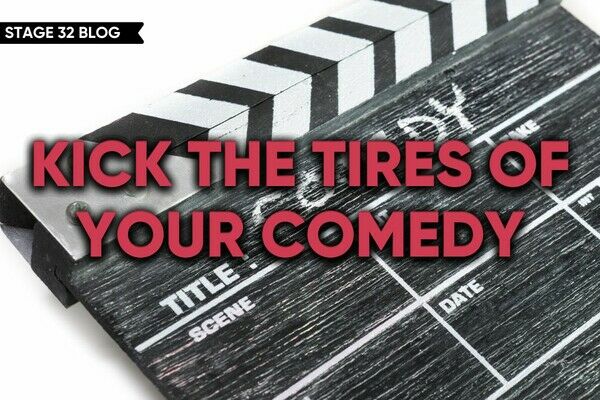Always A Student, Never A Master: The Power Of A Beginner's Mind
When I wrote my first book, it was an adventure. Not only was it my first major project, it was the moment I realized just how little I knew about the craft of writing.
I was two years into my professional writing career when I shifted from short stories to my first book. Sure, I’d written “books” before. But trust me, those will NEVER see the light of day. That already made this one different. I was not writing it for fun or because writing is my passion (though both of those statements are true), I was writing it with the intent that it would be published.
A whole book that was completely written by me.
At the time, it seemed like a daunting task. As I sat down those first few weeks, I realized just how much I had to learn. And with three months until the deadline, I didn’t have a lot of time to learn it.

I spent a month doing nothing but research. I had a rough outline and I had a lot to learn to fill in those gaps. I read books, watched crime dramas, read case studies, and more.
And that was just the first book.
One of my favorite things about the craft is the fact that there is always more to learn. I have an entire bookcase that is mostly research texts from various projects.
These books aren’t only about the subject matter I’m writing, but about the craft itself.
As writers, we have to constantly be improving our craft. We should never settle for what we believe is “good enough.”
I’ve seen writers settle for “good enough” - really, the amount of subpar they will allow - over and over. In fact, this ended up being one of the factors why I left a project I loved. I was the secondary writer to someone who believed they’d learned everything there was to learn about the craft. When you get stuck in a writing relationship like that, it stifles your own growth. After leaving that project, I’ve grown leaps and bounds as a writer.
Ten years ago this year, I published my first short story. Back then, I thought I knew so much. The funny thing is, the more I get into my writing career, the more I realize that there is so much I don’t know.
Here are some things I’ve discovered.

1. There Are Hidden Gems in any Project
I always find inspiration when I indulge in reading/watching bad writing. Back in college, our writing club had a once-a-semester event called “The Night of Bad Writing Night,” where we read some of the worst things we had found over the course of the semester.
It may seem weird but here’s the odd truth. You learn just as much (if not more) from bad writing as you do from good. Seeing where they fell short helps you not to avoid these mistakes in your own writing.
I have a handful of bad movies I watch on occasion for that very reason. Sometimes, I intentionally seek out bad television. I want to learn as much as I can; learning how to create something good requires you to read or watch something different than when you’re learning how to not create something bad.

2. Your Writing Will Change
I’ve been writing since around the time I figured out I could create like all my favorite authors. I recently found a notebook with short stories from when I was around nine years old. Bless younger me’s little heart, it’s a great thing those stories will never see the light of day.
On my computer, I have various drafts from the last 12 years. Sometimes, I take a trip down memory lane and look at just how far I’ve come.
Fun Fact: When I wrote my first murder mystery, I refused to write an autopsy scene. I found them to be gross and didn’t want to deal with the hassle. These days, they’re some of my favorite scenes to write and when I find an author who can write them well (or a TV show that presents them well, from writing to framing), they’ll instantly win me over.
But, it’s amazing to see the ebb and flow of my writing and how it’s changed in the last decade. Every new project - each new draft - shows the progress I’ve made and lessons I’ve learned.
My editor has a laundry list of the ways I’ve improved that he’ll trot out whenever I’m feeling inadequate. My dialogue has become more lifelike, I went from using as little prose as I could get away with to writing descriptive passages, I have strong structure and pacing.
At first, you won’t realize it’s happening. You’ll go back to your first short story or first book and all of a sudden find yourself shocked at how bad you think it is. It’s not that it’s bad, it’s that you’re growing.
Embrace it.

3. Writing Is A Marathon, Not A Sprint
Even articles like this can take days to nail down. From concept to actually writing it, to editing it, it takes all the same steps as creating a book.
Books are monsters. I honestly do not know how some authors are able to crank out three or four a year. I would love to someday get up to two, but even that almost seems overwhelming.
One thing you’ll learn is how to best manage to conquer each new task. Honestly, I’ve discovered my process changes slightly from project to project. I find things I like and don’t like and I adjust accordingly.
Be careful not to push yourself too far too fast. I made that mistake once and it cost me six weeks because I just could not write. Since then, I’ve been careful to learn my limits and not push past them.

4. You’ll Surprise Yourself
A decade ago, a book seemed like a daunting task. Then, I won NaNoWriMo for the first time. And suddenly, it seemed less daunting. This also had the added benefit of bleeding over to college essays and making them feel far less daunting too.
Another story from my first book. For the longest time, people didn’t believe I wrote the climax of the book. They thought my editor did. Surprisingly enough, he had no idea what I was up to until I turned in the draft. Until that point, I didn’t realize I could go that dark. But once I did, I found it easier the next time and every time after that.
Chat with me in the comments below. What lessons have you learned? For us with a plethora of experience, what can we share with the newcomers?
If you find yourself feeling like you’re drowning because you can’t master it, know you’re not alone. I’ve decided to embrace the idea that I’ll never be a master at the craft, I’ll always be a student.
Let's hear your thoughts in the comments below!
Got an idea for a post? Or have you collaborated with Stage 32 members to create a project? We'd love to hear about it. Email Emily at blog@stage32.com and let's get your post published!
Please help support your fellow Stage 32ers by sharing this on social. Check out the social media buttons at the top to share on Instagram @stage32 Twitter @stage32 Facebook @stage32 and LinkedIn @stage-32
| Massive Upgrades To The Stage 32 App – Take Your Networking On The Go |
| Coffee & Content: Directing Tips No One Tells You |















